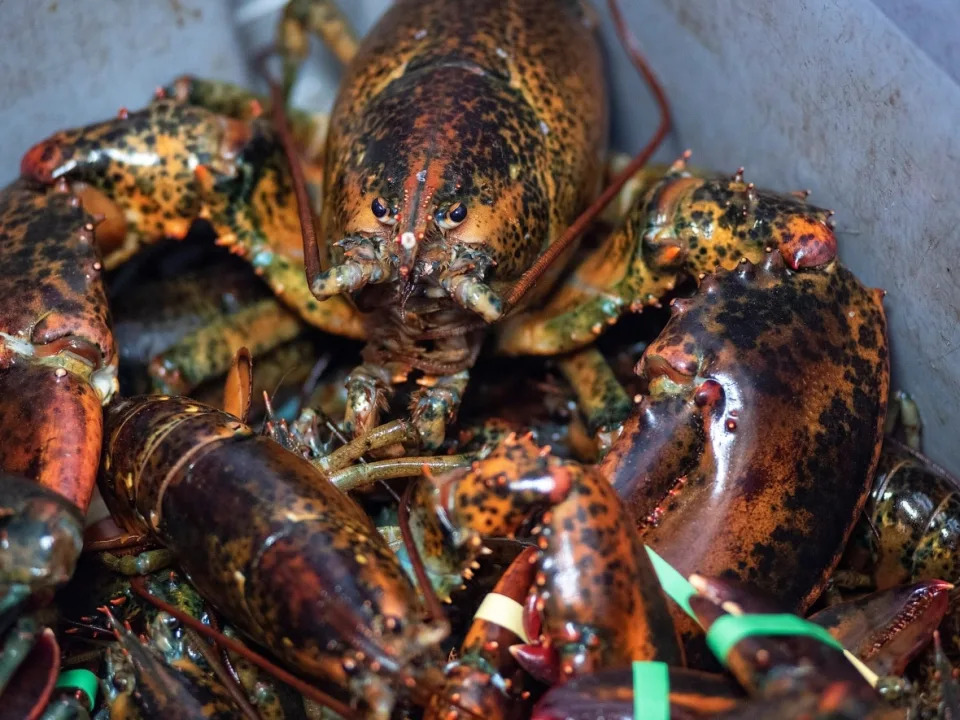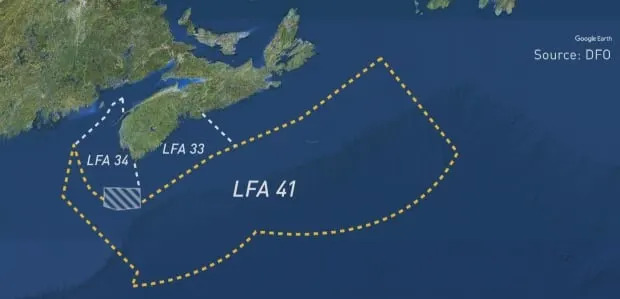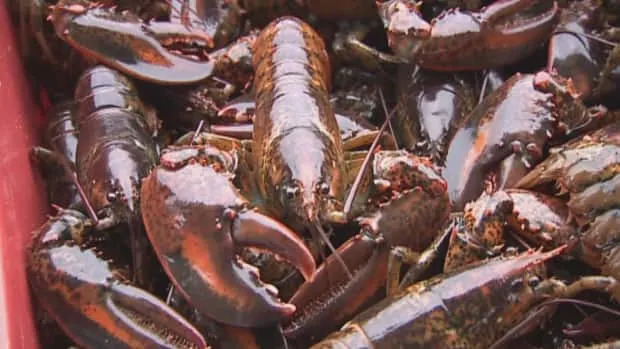CBC
Mon, May 22, 2023

So far, increasing water temperatures don't appear to have affected lobster stocks in Atlantic Canada. (Brian McInnis/CBC - image credit)
Lobster populations off all three Maritime provinces remain strong and the $1.7-billion fishery is sustainable, according to the latest assessments from Fisheries and Oceans Canada (DFO).
It's good news for coastal communities, but warming ocean temperatures caused by climate change is a potential cloud on the horizon.
Adam Cook is a DFO biologist who tracks lobster populations along the Scotian Shelf and Bay of Fundy — waters that support nearly 3,000 commercial licence holders in 12 lobster fishing areas (LFAs).
Cook and his colleagues recently posted stock assessments for 2022. He said all LFAs in the Maritimes are in a healthy zone for stock status.
"Which suggests there's still enough lobster to not raise any sort of conservation concerns. The commercial biomass is doing quite well," Cook said.
It's the same story in the southern Gulf of St. Lawrence, although DFO's stock assessments for five fishings area in that region have not been posted.
Healthy zone
"Our official publication has yet to be released, but it should not be a huge surprise or secret to anybody that the Gulf lobster stock is still thriving and in the healthy zone," said Amelie Rondeau, a division manager for ecosystem science for DFO in the Gulf region.
LFA 34 off southern Nova Scotia accounts for 20 per cent of all Canadian landings and 10 per cent of North American totals.
Landings have averaged 21,800 tonnes annually over the past five years — high relative to historic levels, but down from the peak of nearly 30,000 tonnes in 2016.

CBC/Source: DFO
In LFA 33 next door — from Halifax to Shelburne County — landings have fallen from 8,400 tonnes in 2017-18 to a little over 7,000 tonnes in 2021-2022.
Both fishing areas remain firmly in the healthy zone, but scientists want to know if the population decline is part of a natural cycle or if climate change is playing a part.
Since 2012, there have been several unusually warm water years in the area — including 2022, when record-high temperatures were broken.
CIimate change concerns
"So it is something we're monitoring," said Cook. "We're currently working through some analysis to see what that impact could be. Whether we can already detect it or when we might expect to see some of those changes."
Cooks says warming water is most likely to negatively affect young lobster and it would be seven to eight years before it shows up in landings.
"Those are the sort of things we are looking at from warm water events that may be affecting reproduction survival," Cook said.

CBC
Dan Fleck represents inshore fishermen in southwest Nova Scotia. He said catches in the 2022-23 winter season have dropped — especially this spring.
"We're pleased to hear that positive information that we are still within the healthy zone, but we are concerned because we have members between Eastern Passage and Digby and there are some pretty grim stories coming out," Fleck said. "Some people [are] down 40 plus per cent, other people not as much. But when we average that out, it's down 25 per cent."
Fishermen are also watching for the impact of rising ocean temperatures, aware of the dwindling lobster catches off southern New England.
Lobsters a resilient species
"We've seen some serious downturns over the last number of years in the southern waters and is it global warming, water temperatures, stocks migrating?"
Cook says there is no smoking gun to explain the dip off southern Nova Scotia.
Lobsters are more resilient than species that survive within a narrow temperature range like snow crabs. Lobsters can tolerate a broader range of temperatures.
"I'm not ready to put it on a single factor right now. We are coming down from the all-time high that we've ever seen for lobster stocks within that area. So at some point, populations are going to decline through natural cycles," Cook said. "We're working to try and parse out that variability, so be able to describe how much variability is in the system and whether we're seeing trends that we can relate back to various factors that are changing."
MORE TOP STORIES
No comments:
Post a Comment